Description
What Is a 10 dBi Lora Antenna Omni Outdoor Antenna?
The 10 dBi Lora Antenna outdoor Fiberglass Antenna CTRF-ANTENNA-FRP-8693-201000-NK-B antenna style is a 10 dBi high peak gain 868 MHz / 915 MHz Lora antenna IP67 waterproof glass fiber Lora Antenna 10dBi antenna manufactured by C&T RF Antennas Inc for IoT & M2M industries.
The 10 dBi Lora Antenna Omnidirectional antenna is providing wireless connectivity for devices, terminals, laptops, tablets, and smartphones in the coverage area.
Lora frequency vs NB-IoT frequency
Lora technology operates in the unlicensed band below 1 GHz and therefore does not require additional payment for its application. The band between 500 MHz and 1 GHz is optimal for long-range communication, as the actual size and efficiency of the antenna are quite advantageous.
LoRaWAN uses free unlicensed bands and is an asynchronous communication protocol, making it the best choice for battery power and low cost.
Lora and LoRaWAN protocols, which have unique characteristics in terms of handling interference, network overlap, and scalability, do not offer the same quality of service (QoS) as cellular protocols.
The bidding for the licensed Sub-GHz band is reported to be in excess of $500 million per MHz. Cellular networks and NB-IoT technology do not offer the same battery life as LoRa due to quality of service (QoS) considerations.
Due to QoS and high band usage fees, cellular and NB-IoT are recommended for applications where QoS is required, and LoRa is a good choice when low cost and high volume of connections are the preferred option.
Cellular networks are designed with the idea of optimal band utilization, at the expense of node cost and battery life. Conversely, LoRaWAN nodes are designed for low cost and long battery life and are somewhat lacking in terms of band utilization.
There are two important factors to consider regarding battery life, the current consumption of the node (peak and average current) and the protocol content.
LoRaWAN is an asynchronous ALOHA-based protocol, meaning that nodes can sleep for long or short periods of time depending on the needs of the specific application scenario, whereas with synchronous protocols such as cellular, nodes must be networked regularly.
For example, a commercially available mobile phone must now synchronize with the network every 1.5s when working. In NB-IoT, this synchronization becomes less frequent but still takes place at regular intervals, thus consuming additional battery power.
In cellular networks, modulation is an effective means of making full use of the frequency band, but this is not effective from the node’s point of view.
Cellular modulation (OFDM or FDMA) requires a linear transmitter to generate the modulation signal, and a linear transmitter requires several orders of magnitude more peak current than non-linear modulation, and higher peak currents consume more battery power.
However, synchronous communication protocols offer advantages in terms of shorter downlink latency, while NB-IoT can provide fast data transfer rates for applications that require large data throughput.
Class B of LoRaWAN, on the other hand, reduces downlink communication latency by periodically (programmatically implemented) waking up the terminal to receive downlink messages.
So NB-IoT may be a better choice for applications that require frequent communication, shorter latency, or larger data volumes, while LoRa is better for scenarios that require lower cost, higher battery life, and infrequent communication.
The Omnidirectional outdoor antenna high gain 10 dBi Lora Antenna is available at C&T RF Antennas Inc, the indoor & outdoor Lora & LoraWan antennas manufacturer in China.
C&T RF Antennas Inc. provides internal & external antennas with antenna radio frequencies such as NFC, 169MHz, 230MHz, 315MHz, 433MHz, 868MHz, 915MHz, VHF&UHF, Lora, NB-IoT, ADS-B, GSM, GNSS, GPRS, 1.2 GHz, 1.4 GHz, 1.8 GHz, Wi-Fi 2.4 GHz, 5.8 GHz, Cellular 2G, 3G, 3.5 GHz, 4G LTE, GPS, 5G NR, 6G, etc.
C&T RF Antennas Inc. provides RF antennae with Omni & Directional antenna types such as Dipole Antennas, Whip Antennas, Marine Antennas, Router Antennas, MIMO Antennas, Combo Antennas, PCB Antennas, FPC Antennas, Spring Antennas, Magnetic Antennas, Sector Antennas, Yagi Antennas, and Accessories, etc, for IoT & M2M industries.
Contact us for more details on the Omni high gain 10 dBi Lora Antenna such as 10 dBi Lora Antenna price, 10 dBi Lora Antenna datasheet, 10 dBi Lora Antenna inventory, or the other internal & external Lora & LoraWan antenna types.
10 dBi Lora Antenna Omni Outdoor Antenna Specifications
10 dBi Lora Antenna Omni Outdoor Antenna Electrical Specifications |
|
| RF Antenna Type | Omni Fiberglass Antenna |
| Model | CTRF-ANTENNA-FRP-8693-201000-NK-B |
| Frequency Range | 860-930MHz |
| Gain | 10dBi |
| VSWR | ≤2.0 |
| Impedance | 50 Ω |
| Polarization | Vertical |
| Directional | Omni-directional |
| Connector | N-type Female |
| Max Power | 50W |
| Lightning Protection | DC-Ground |
10 dBi Lora Antenna Omni Outdoor Antenna Mechanical Specifications |
|
| Dimension | 20*1000mm |
| Weight | Approx. 850g |
| Radome Material | Fiberglass |
| Operation Temperature | -20˚C ~ +85˚C |
| Storage Temperature | -40˚C ~ +85˚C |
| Color | Black |
| Antenna Design | Dipole Array |
| Mounting | Screw/Pole |
| Safety Emission and other | RoHS Compliant |
| Applications | Public Safety/LMR/P25/TETRA, ISM/SCADA/Utilities, RFID, IoT/NB-IoT/LoRa, etc. |
10 dBi Lora Antenna Omni Outdoor Antenna Features
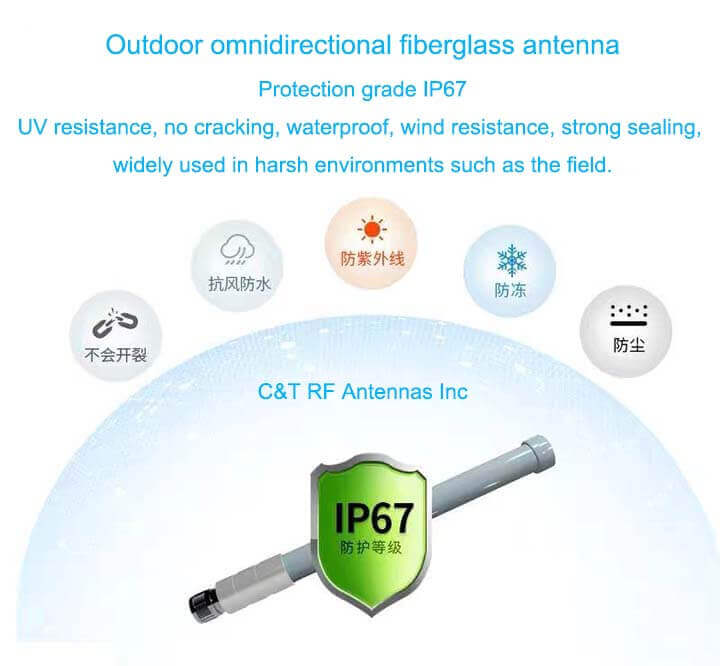
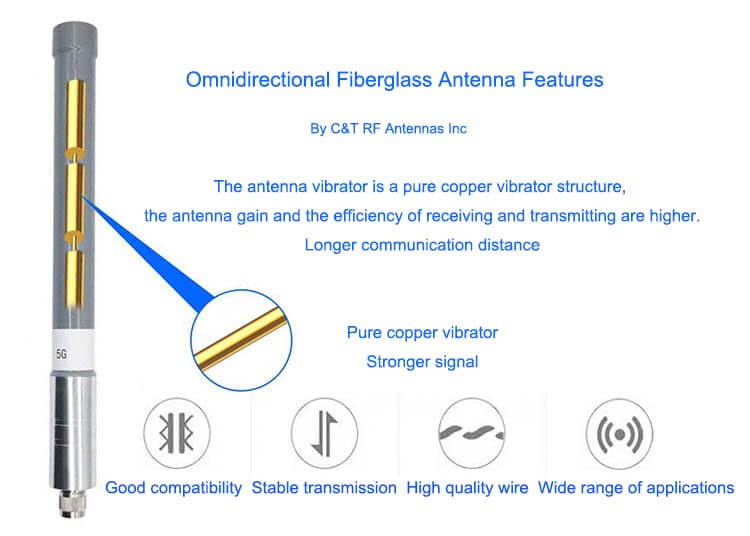
10 dBi Lora Antenna Omni Outdoor Antenna Installations
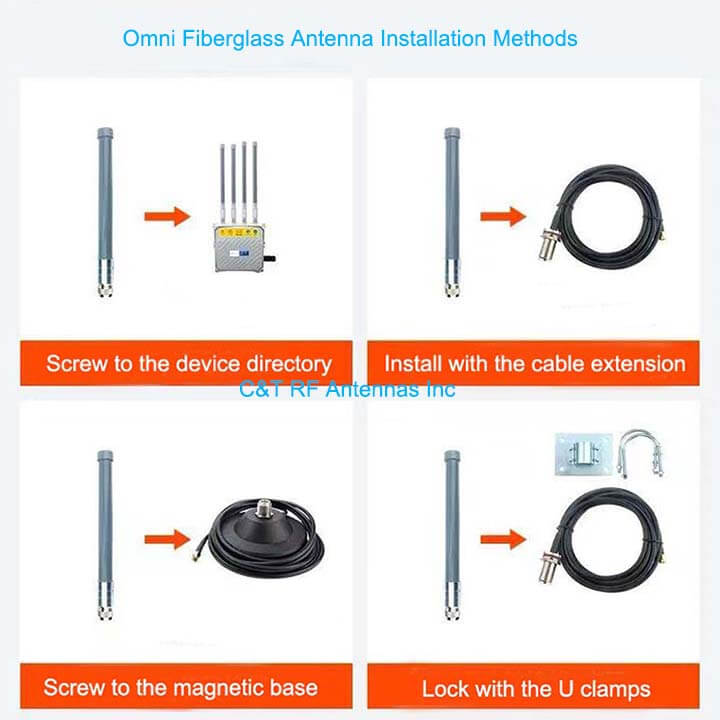
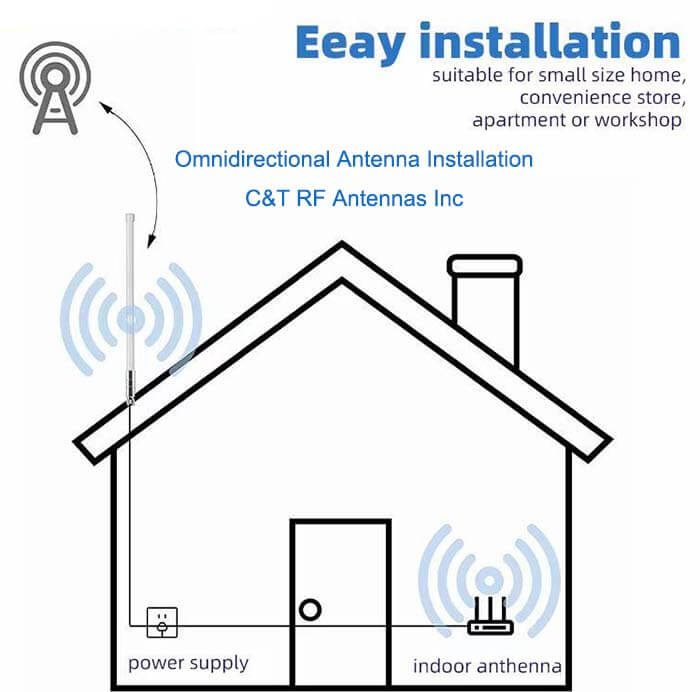
10 dBi Lora Antenna Omni Outdoor Antenna Applications
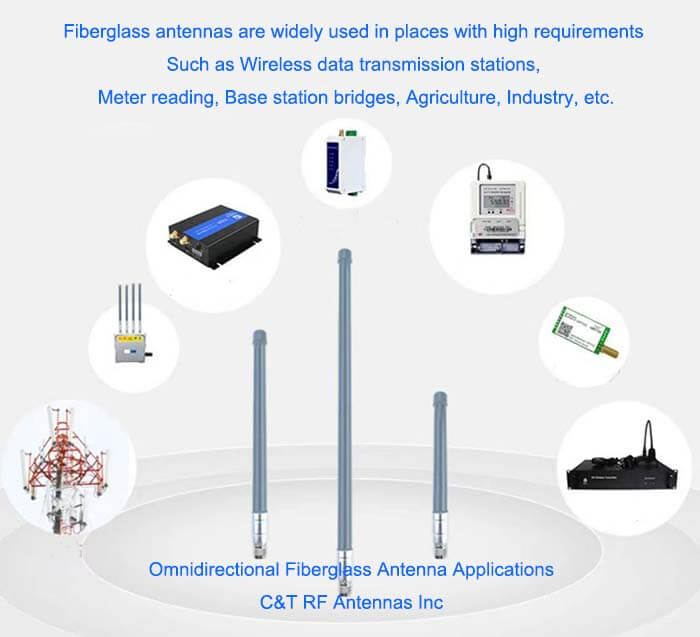

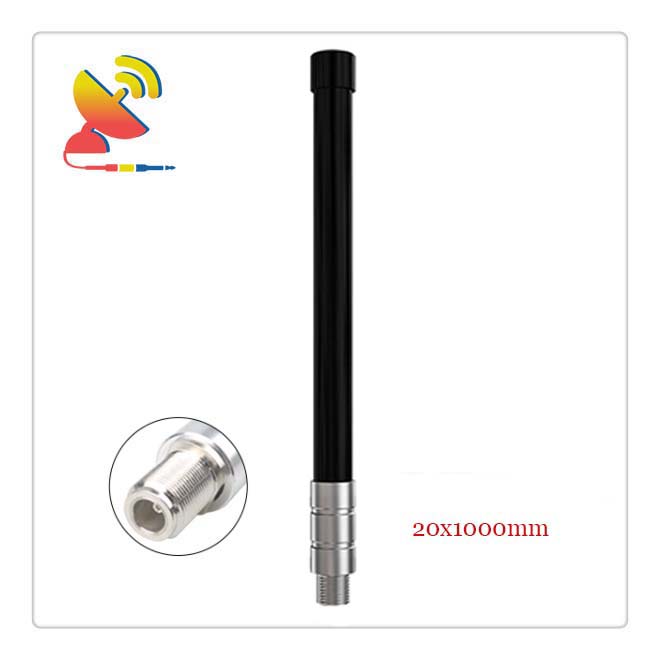
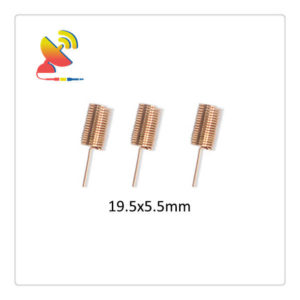
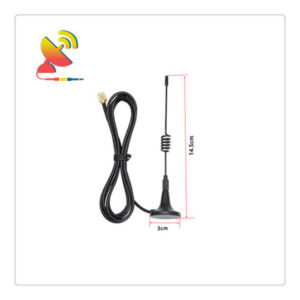
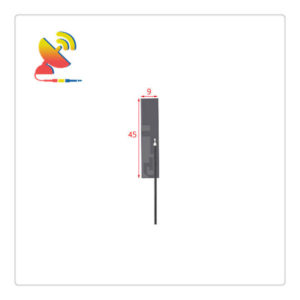
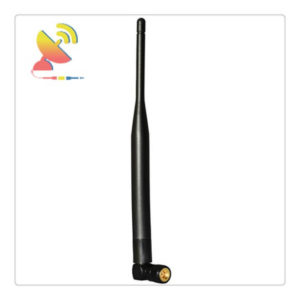
Reviews
There are no reviews yet.